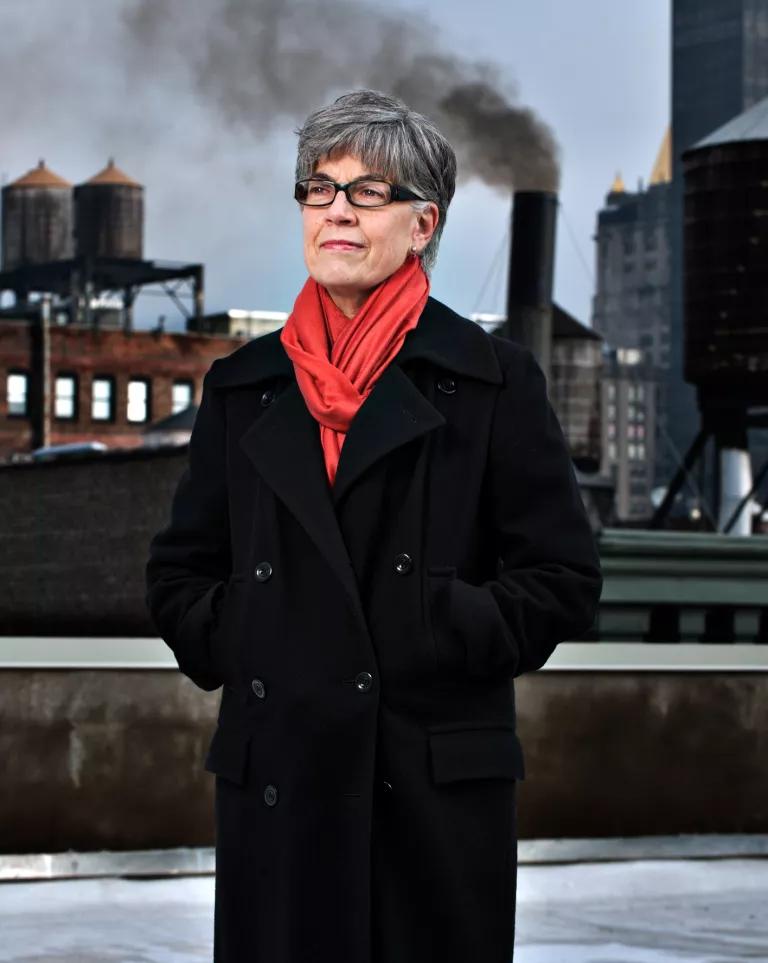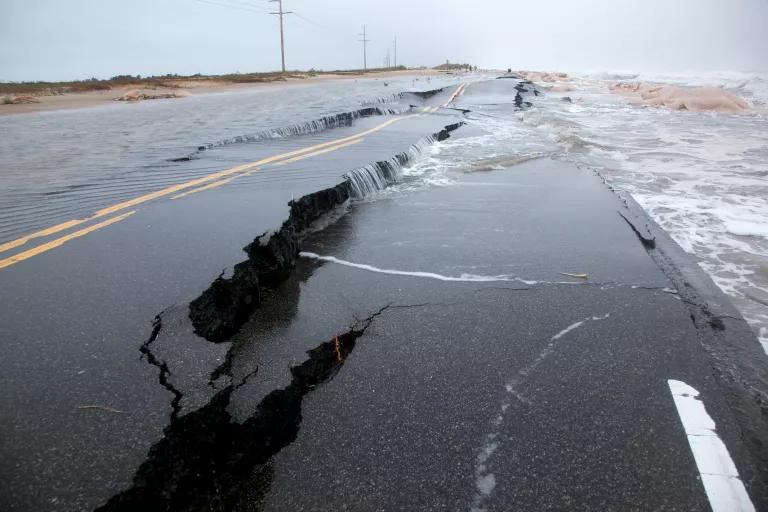Climate Change Is Making Us Sick
Scientist Kim Knowlton monitors the inextricable connections between the planet's fragile health and our own.
A version of this story was originally published by NRDC's onEarth magazine.

Kim Knowlton
Jeff Weiner
Today, Knowlton combines a rigorous approach to collecting hard data with the same energizing curiosity that her preschool self brought to the task of poking around at bee wings and antennae. Her area of specialty—studying how climate change is adversely affecting human health—is still young enough that new puzzles, in ever more urgent need of solving, keep rolling in at a rapid clip.
A senior scientist in NRDC's Health program since 2007, Knowlton is also part of the organization's India initiative and deputy director of the NRDC Science Center. Her work allows her to play two of her strongest cards. One is a broad base of academic knowledge, amassed during a career that has touched upon not only climate change but also geology and radiation science. The other is a deep-seated humanism that has found expression in the arts (Knowlton was a member of Watchface, an avant-garde performance troupe, in the 1980s) and in her decision to pursue a doctorate in public health. Her job, appropriately, is to map the intersection of human and environmental pathologies.
What Knowlton has been finding there makes it clear that climate change–related health problems aren't just something we will experience if we stay on our current path—it's something we're experiencing right now. She notes that "rising temperatures are lengthening the pollen-production season," citing a study she coauthored, which showed that the Midwest's ragweed season grew by anywhere from 13 to 27 days between 1995 and 2009. More heat waves mean more heat strokes, heart attacks, even suicides. Increased flooding as a result of storm surges and hurricanes means an increased risk of microbial or chemical contamination, as pathogens and toxins are whisked down streams that used to be streets.
One relatively uncharted frontier Knowlton feels compelled to explore further is the link between climate-related disasters and mental health. Among the aftermaths of an event like Hurricane Sandy, she says, can be the despair that accompanies the loss of a home, job, or loved one. A major drought like the one that hit the Midwest in the summer of 2012 can lead to an epidemic of anxiety, as "whole communities see their economic base shattered, just as happened during the Dust Bowl." And since mental-health issues often go untreated, "we're dealing with a set of symptoms that don't always get better over time," she says.

Storm damage caused by a tidal surge on Highway 12 in Hatteras Island, North Carolina
With an uptick in requests to speak about climate change and health, one came to Knowlton from an organization of municipal clerks. She sees these clerks as "climate-change first responders" who may be wondering if semi-regular calamity has become the new normal. "People walk into their offices and say, 'Something's wrong. We need help.'" If climate-change awareness is starting to make real headway in the American heartland, one reason may well be that both rural and city dwellers "are getting hammered by all these extreme weather events, and people who are economically disadvantaged or underserved by doctors and health-care facilities are more vulnerable to the health effects."
As awareness continues to grow, Knowlton hopes our public-health infrastructure will grow along with it so that we can meet what she deems the "preparedness challenge." It's a challenge that's clearly already upon us. "We need to wrap our heads around one basic fact," she says. "These events are much worse and happening at a much faster rate than they were before."
This NRDC.org story is available for online republication by news media outlets or nonprofits under these conditions: The writer(s) must be credited with a byline; you must note prominently that the story was originally published by NRDC.org and link to the original; the story cannot be edited (beyond simple things such as grammar); you can’t resell the story in any form or grant republishing rights to other outlets; you can’t republish our material wholesale or automatically—you need to select stories individually; you can’t republish the photos or graphics on our site without specific permission; you should drop us a note to let us know when you’ve used one of our stories.

How to Stay Safe From Wildfire Smoke
Public Health Scientist and Advocate
What Is the Justice40 Initiative?